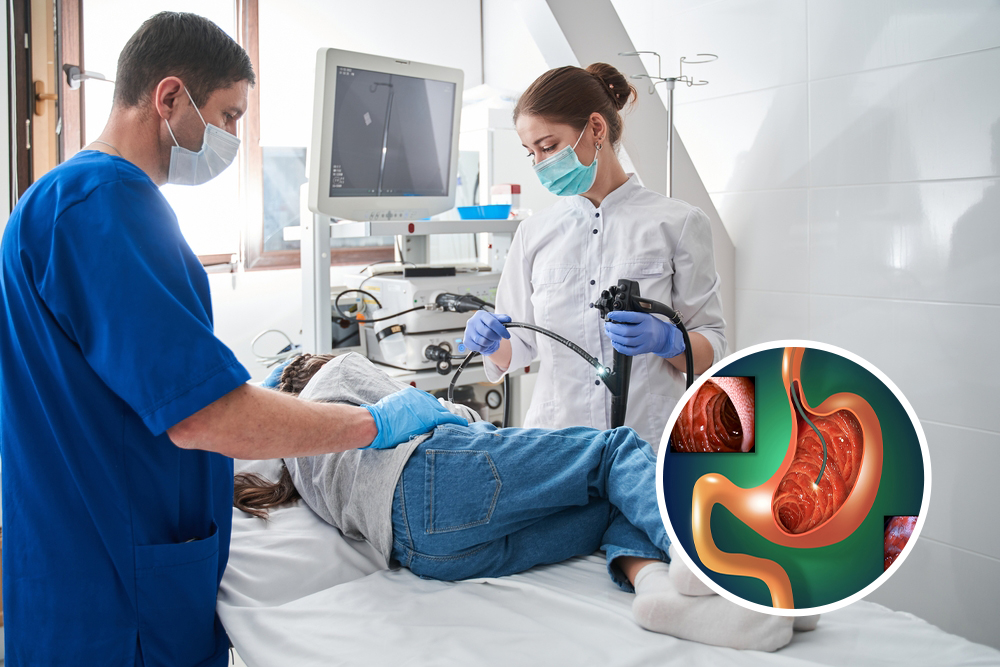Subscribe to out newsletter today to receive latest news administrate cost effective for tactical data.
2478 Street City Ohio 90255
Shopping cart
- Phone: +91 77997 90251
- Email: info@maplegastro.com
- 10AM - 6PM, Monday to Saturday
Subscribe to out newsletter today to receive latest news administrate cost effective for tactical data.
2478 Street City Ohio 90255
Mon - Sat :10am - 6pm
Sunday: Closed

Gastrointestinal (GI) endoscopy is a minimally invasive procedure used to diagnose and treat digestive tract conditions. At Maple Gastro Care, Hyderabad, our expert specialists use advanced technology for accurate diagnosis and effective treatment, ensuring optimal digestive health.
GI endoscopy involves inserting a thin, flexible tube with a camera (endoscope) to examine the digestive tract. It helps diagnose conditions, investigate symptoms, and perform treatments like polyp removal or bleeding control
